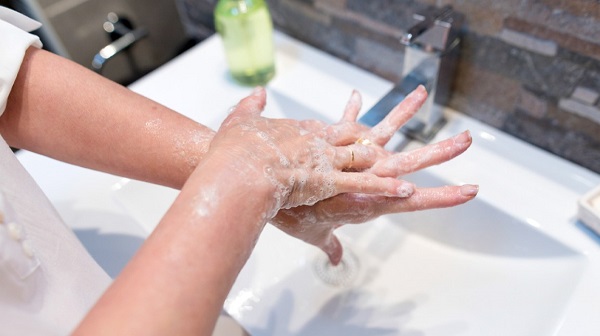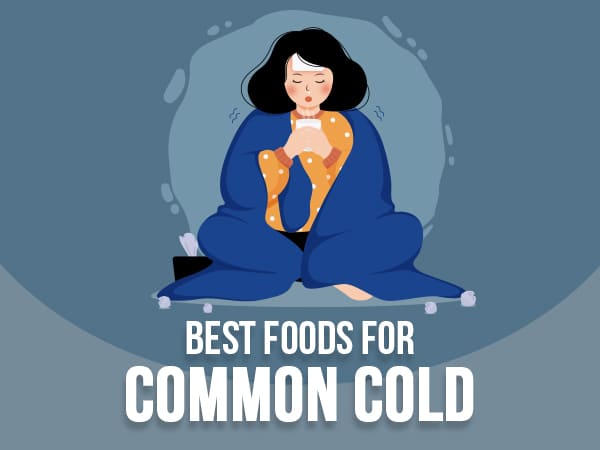
1. Not maintaining hand hygiene
Maintaining proper hand hygiene is the foremost and basic rule for staying healthy. It decreases the multiplication of microorganisms and reduces infection risk. According to the CDC, hands should be properly cleaned with soap and water or alcohol-based hand sanitisers before eating, after using restrooms or anytime they look dirty.
This is because we touch our mouth and nose with hands several times a day, which may allow pathogens to enter directly into our body through these mucous membranes. [1]
 FAQs On Hand Hygiene:What You Should Remember And Follow
FAQs On Hand Hygiene:What You Should Remember And Follow

2. Taking the elevators
Elevators might allow us to comfortably reach faster, but it has several disadvantages. Always using elevators can make you lazy and impact your physical health due to lack of movement.
Another reason is, the buttons of the elevators are touched by many infected hands. This may increase the risk of transfer of pathogens to your hands, and then to your body. Elevators also increase the chances of infection due to the enclosed space.

3. Lack of exercise
Exercises not only help maintain a proper waistline, but also improves our immunity and other body functions. It helps prevent the common cold up to a certain extent. [2]
Even performing simple exercises or walking can improve the function of white blood cells that help fight infections or other foreign substance entering the body. This may prevent us from getting sick.
 How Does Prone Positioning Help In The Management Of COVID-19 In Patients?
How Does Prone Positioning Help In The Management Of COVID-19 In Patients?

4. Cold feet
Common folklore says that cold foot or chilling of the body surface can increase the risk of developing the common cold. This is because if the temperature of the feet decreases, the body temperature also starts decreasing, making the body susceptible to cold-causing pathogens. [3]
That is why it is advised to wear socks and keep the feet warm during the cold season.
 Signs That Say It’s More Than Just A Common Cold
Signs That Say It’s More Than Just A Common Cold

5. Consuming alcohol/tobacco
Both, alcohol consumption and smoking tobacco are considered bad for our health. They are believed to suppress the immune system functions making them prone to many diseases and infections.
Smokers are more at the risk of getting cold due to their compromised respiratory system while alcohol consumption in excess is viewed as being immunosuppressive by the experts. [4]
 21 Effective Natural Home Remedies For Fever
21 Effective Natural Home Remedies For Fever
READ RELATED: The Best Chest Workout for Stronger, Bigger Pecs

6. Not getting proper sleep
Shorter sleep duration and poor sleep quality can cause a significant decrease in immunity and makes us prone to catching a common cold. They are also related to lower resistance to illness.
Lack of sleep leads to a reduction in natural killer cells and suppressed interleukin-2 production that helps regulate the activities of white blood cells. It is recommended to sleep for 7-8 hours a day. [5]
 What Are The Best Exercises To Sleep Better?
What Are The Best Exercises To Sleep Better?

7. Stress
Several experimental trials say that psychological stress is directly linked to increased risk of developing infectious diseases, including the common cold. Stressful life events, daily problems and negative emotions can make a person vulnerable to the common cold due to the disruption in the functioning of the immune system. [6]
Avoid taking stress by practice meditation or other mind relaxation techniques. Also, seek emotional support, eat a balanced diet and exercise regularly.

8. Often visiting crowded places
Crowded places (malls or theatres) means more people and more people means more germs. In crowded places, we are likely to come in contact with many people and touch a lot of things which may allow the infections to directly come in contact with our body.
Therefore, it is better to avoid a crowded place if you often get sick or have a week immune system. Even if you visit, make sure to maintain proper hand hygiene and cover your mouth and nose.
 15 Foods That May Help Prevent The Common Cold
15 Foods That May Help Prevent The Common Cold

10. Having unhealthy foods
Diet and immune system are interrelated. Having unhealthy foods such as saturated fats and sugary foods can weaken the immune system and lead to many inflammatory diseases, including the common cold.
Eat a well-balanced diet that consists of all vital nutrients. This helps boost the immune system which further helps protect the body from the attack of pathogens. [7]
 When Will the COVID-19 Pandemic Peak And End? A Data-Based Report
When Will the COVID-19 Pandemic Peak And End? A Data-Based Report

11. Not drinking enough water
Water has a great influence on the immune system due to its important role in cellular functions. Staying hydrated keeps the body energised, immune system functioning and also helps clear out all the pathogens from the body that may cause the common cold. [8]
It is recommended to drink around 3 litres of water a day.
Source:



 9 Healthy Reasons To Avoid Lift and Take Stairs
9 Healthy Reasons To Avoid Lift and Take Stairs What You Need To Know About D614G Strain Of Coronavirus
What You Need To Know About D614G Strain Of Coronavirus



